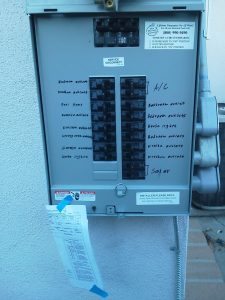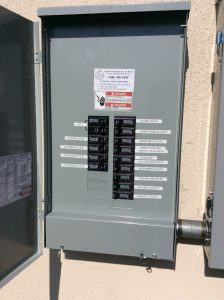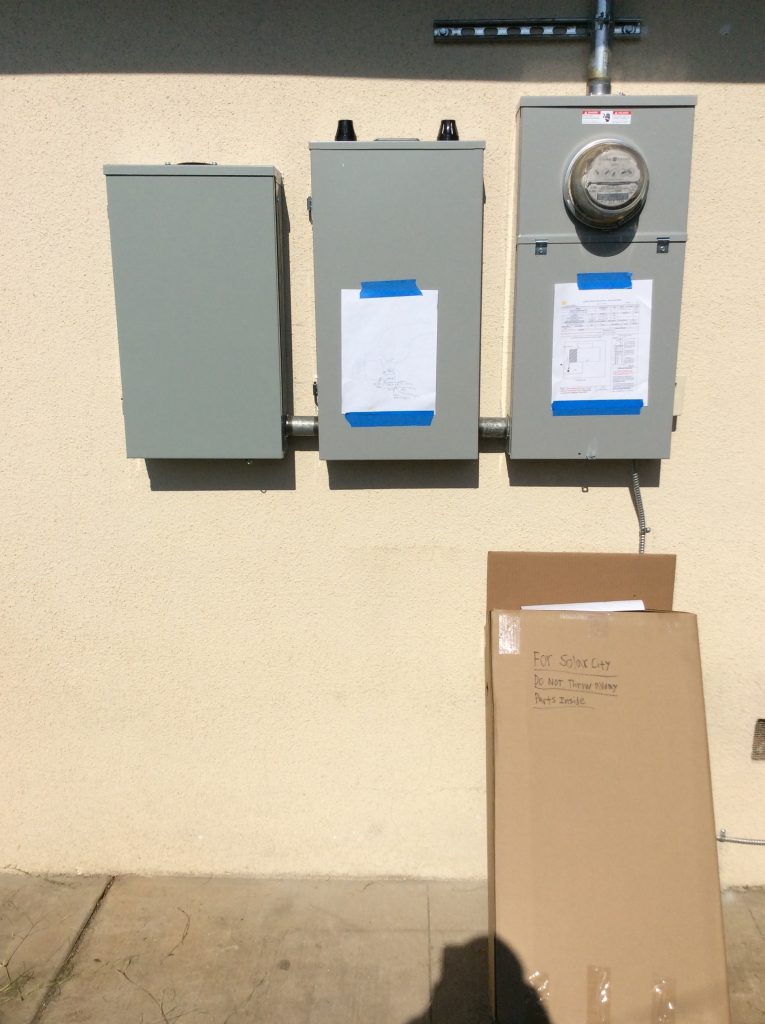 A safe electrical system is invaluable to every home and if you have a Federal Pacific Electrical Panel (FPE), replacing it is the best solution to ensure your electrical safety.
A safe electrical system is invaluable to every home and if you have a Federal Pacific Electrical Panel (FPE), replacing it is the best solution to ensure your electrical safety.
Federal Pacific Electrical Panels are commonly found in homes between 20 and 70 years old. These panels were first introduced by Reliance Electric in the 1950s and quickly became installed in millions of homes across the country. It was soon discovered that FPE panels were unsafe and present a great risk to homes that use them.
Your home’s electrical panel distributes electrical power safely across all circuits. It is also built to ensure protection by tripping off in situations like a short circuit, circuit overload, power surge, and so on. If the breaker cannot do this, the chances of an electrical fire starting increase dangerously.
How an FPE breaker puts your home in danger.
According to reports from the United States Consumer Product Safety Commission (CPSC), Federal Pacific breakers may fail to trip during an overload or short-circuiting. FPE breakers have recorded high rates of not tripping when necessary for your electrical protection. It was also discovered that the breakers tend to enter a lock-up. A lock-up describes a situation where a breaker that has tripped once will never trip in the future regardless of dangerous conditions like an electrical overload.
Studies estimate over 2,800 electrical fires caused each year by a Federal Pacific Electrical Panel that didn’t trip.
Most of the unreliability of the panel is due to the use of cheap materials in its manufacture and their limited original design.
Distinct risks and problems posed by a Federal Pacific breaker also includes;
- The crowded wires often found within the panel box.
- The breakers to do not switch off even in the OFF position.
- Arcing occurs at the bus.
- The Federal Pacific breakers trip unexpectedly when the dead front cover is removed.
- Breakers are often not tightly connected to the bus bar.
Electrical inspectors always encourage homeowners to replace and not repair a Federal Pacific Electrical Panel. Electricians may also hesitate or refuse to fix problems with these panels because they cannot guarantee the results or your electrical safe afterwards.
Identifying a Federal Pacific Electrical Panel
You may have a Federal Pacific Electrical Panel if your home is as old as between 20 to 70 years. Since the company no longer exists, you can’t purchase a new FPE panel. It can only be present if it was installed in older homes. You can identify an FPE panel with the labels or logos on the front cover. The common appearance is an orange and white label.
You can also look out for the name Stab-Lok written inside the panel or on the breaker. A signature red label across the front of the panel is another indication.
The cost of replacing a Federal Pacific Electrical Panel may vary across electricians, location, and other factors. The replacement can generally cost anywhere from $1500 to $2000, and even more.
The replacement will include any necessary repairs, rewiring, moving the panel location, and installation that are up to recent codes.





 Your house is not the scene of a horror movie. So, in most cases when you have heard a certain buzzing sound more than once, it’s probably real and not your mind playing tricks.
Your house is not the scene of a horror movie. So, in most cases when you have heard a certain buzzing sound more than once, it’s probably real and not your mind playing tricks. A refrigerator is almost a must-have in modern homes and as such various models hit the market every day trying to meet up with homeowners’ needs. When you purchase a new refrigerator, it’s fine to wonder if there will be any complications with your home’s electrical system.
A refrigerator is almost a must-have in modern homes and as such various models hit the market every day trying to meet up with homeowners’ needs. When you purchase a new refrigerator, it’s fine to wonder if there will be any complications with your home’s electrical system. Your home’s electrical panel provides power to all electrical components of the home. But sometimes the electrical panel may need assistance and this is where a subpanel comes in.
Your home’s electrical panel provides power to all electrical components of the home. But sometimes the electrical panel may need assistance and this is where a subpanel comes in. It’s just annoying to live in a home that does not have enough power. The voltage will drop frequently, and this can be damaging to your electronics. Situations like this indicate that you need to upgrade your electrical panel. Other reasons why you might need to upgrade your panel include:
It’s just annoying to live in a home that does not have enough power. The voltage will drop frequently, and this can be damaging to your electronics. Situations like this indicate that you need to upgrade your electrical panel. Other reasons why you might need to upgrade your panel include: In the past, many homes could get away with using at most a 60 – 100 Amp service. But as technology evolves every day and homeowners are exposed to more and more appliances, 100 Amps can no longer cut it for most homes.
In the past, many homes could get away with using at most a 60 – 100 Amp service. But as technology evolves every day and homeowners are exposed to more and more appliances, 100 Amps can no longer cut it for most homes.  When you are not up for the huge investment on a central AC, a window AC may be your next best option. A window AC is typically installed at the window but unlike a central AC, they only service the rooms they are installed in. Only a central AC can cool all or many rooms at once. Read on as we explore what a window AC could mean for your energy bills.
When you are not up for the huge investment on a central AC, a window AC may be your next best option. A window AC is typically installed at the window but unlike a central AC, they only service the rooms they are installed in. Only a central AC can cool all or many rooms at once. Read on as we explore what a window AC could mean for your energy bills.